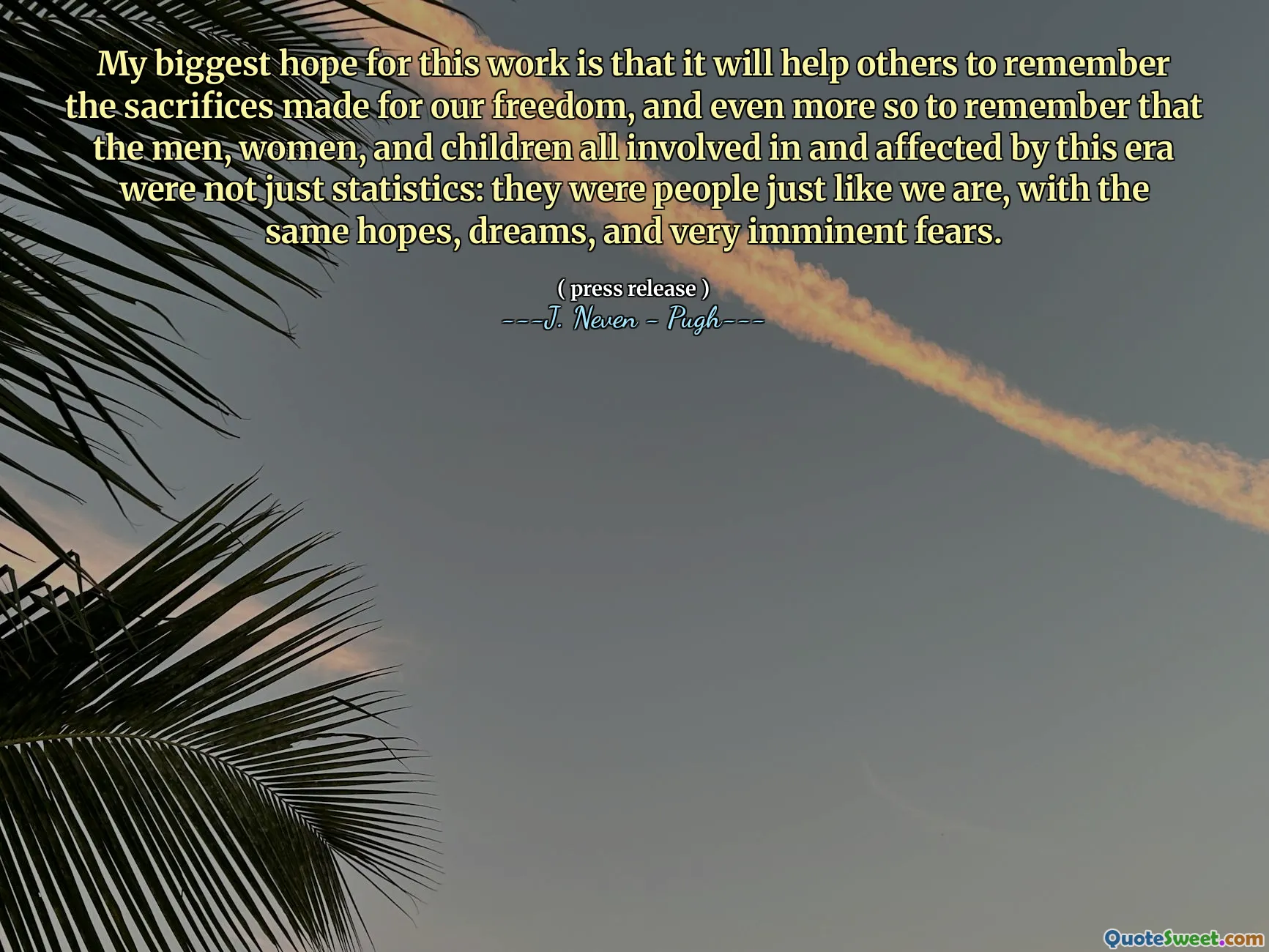
My biggest hope for this work is that it will help others to remember the sacrifices made for our freedom, and even more so to remember that the men, women, and children all involved in and affected by this era were not just statistics: they were people just like we are, with the same hopes, dreams, and very imminent fears.
This quote eloquently underlines the importance of empathy and remembrance when reflecting on historical sacrifices. It beckons us to look beyond mere numbers, acknowledging the human stories behind every event and sacrifice. In a world increasingly driven by data and statistics, it's vital to remember that each figure represents a real person — with hopes, fears, and innermost desires. Recognizing this human aspect fosters deeper compassion and understanding, reminding us that history is composed of countless individual experiences, not just collective narratives. The speaker hopes that their work can serve as a bridge between past and present, encouraging others to honor those who fought or suffered for our freedoms, and to prevent their sacrifices from fading into oblivion. This call to remembrance is especially significant in times where the risk of historical amnesia grows, prompting us to preserve the stories that define our shared humanity. Moreover, it emphasizes that historical awareness is not just an act of academic memory but a moral imperative to honor those who endured hardships for a better future. Their fears, hopes, and resilience inspire us to live consciously, appreciating the cost of freedom and the importance of empathy across generations.






